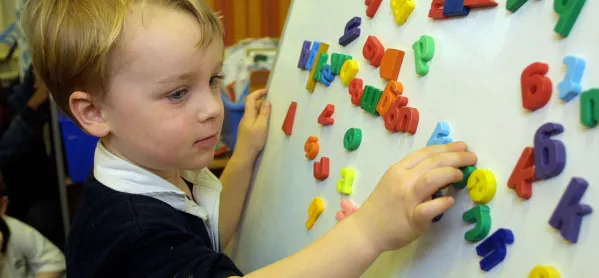- Home
- Why doesn’t Ofsted treat all early years settings equally?
Why doesn’t Ofsted treat all early years settings equally?

High-quality childcare and early education provide children with the experiences and opportunities they need to learn and develop. All children deserve access to the same quality childcare and to be given the best start to life.
Yet the way that Ofsted works means that childcare provided in schools is monitored differently to childcare provided in private, voluntary or independent (PVI) settings. We know that the higher the quality of childcare, the bigger the difference it has in a child’s development.
Having different monitoring systems means that we are at risk of entrenching inconsistencies in quality. This cannot be right. It’s the poorer children, who need additional support from childcare, that lose out the most. Ofsted is currently consulting on a new education inspection framework, which presents a major opportunity for change - but differences between settings are being reinforced.
Ofsted inspectors are guided by handbooks that tell them what to look out for. The proposed handbooks for PVI settings and childcare located in schools are different. This makes sense. Inspectors in schools can be asked to look at lessons for 11-year-olds, as well as early education for the youngest children, and this needs to be reflected in the school’s handbook. What doesn’t make sense is that these different types of settings are being held to different standards of quality.
This is apparent when it comes to ambitions for children living in poverty. The proposed handbook guiding childcare in schools is clear that we must ensure that “over time, children consistently achieve highly, particularly those from disadvantaged backgrounds”. Yet this is less explicit in the PVI handbook and while the curriculum is expected to be ambitious, information about helping children in poverty to catch up and narrow the attainment gap has been removed.
Early years: differences in Ofsted criteria
This might seem like a subtle distinction, but it’s important. The attainment gap between five-year olds living in poverty and their wealthier peers has grown for the first time in four years. Ofsted shapes what providers focus on and removing these ambitions from the PVI handbook risks disadvantaged children falling through the gaps.
But there are also areas where settings in schools are assessed against lower standards.
This can be seen in the expectations for parental engagement. Families living in poverty can face additional challenges to supporting their child’s learning in the home, but early years staff help to overcome this by providing parents with tools, skills and confidence. This is crucial for children’s development, yet the only requirements laid out in the schools’ handbook are for practitioners to provide information on reading in the home.
We know that learning in the early years goes far beyond reading and that for families facing barriers to learning, being given information is not enough. They require tailored support, suited to their individual needs. This is better-reflected in the PVI handbook, which recognises the value of effective engagement with parents to help them to understand their child’s development and bolster learning at home.
Inspectors in schools also cover a broad range of age groups and are unlikely to have specific early years expertise. To overcome this, the schools’ handbook provides information for inspectors on what to look out for in the youngest children. Yet the information is vague, without any specifics on what good quality interactions look like for the youngest children. This guidance needs to be enhanced to support inspectors to give an accurate judgement of the quality of childcare in schools.
It is widely agreed that high-quality childcare is most important for disadvantaged children, who are at risk of falling behind. So it is poorer children who stand to benefit the most if Ofsted treats all early years settings equally.
We urge Ofsted to use the inspection framework consultation as an opportunity to standardise the criteria for inspections across the handbooks for schools and PVIs. Parents need to be reassured that whichever setting their child attends, it will deliver high-quality early education. The proposed handbooks as they stand risk entrenching quality differences between different types of childcare, leading to serious implications for children’s early development.
Charlotte Lynch is a policy adviser at Save the Children UK
Keep reading for just £1 per month
You've reached your limit of free articles this month. Subscribe for £1 per month for three months and get:
- Unlimited access to all Tes magazine content
- Exclusive subscriber-only stories
- Award-winning email newsletters
